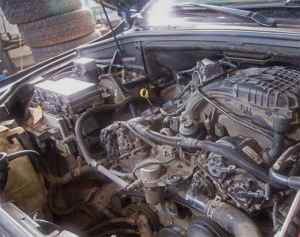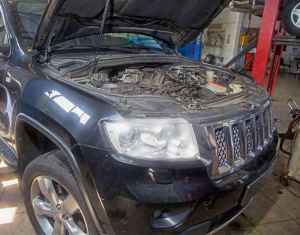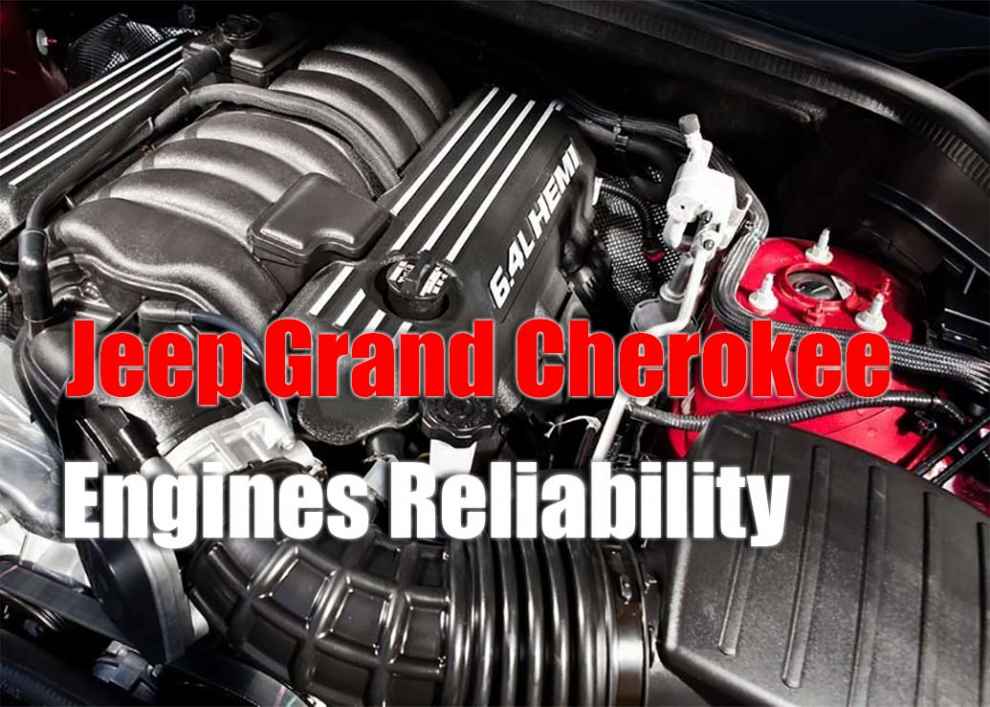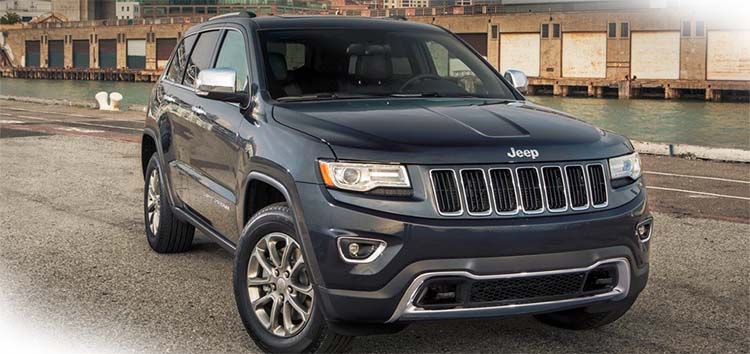Jeep Grand Cherokee is a popular SUV that comes in different engine variants. The diesel and gasoline engines have both been reported to be reliable. However, there are some differences between the two. In this blog post, we will compare the reliability of the Jeep Grand Cherokee diesel and gasoline engines.
Since 1992, the Jeep Grand Cherokee was equipped primarily with large volume gasoline engines: 4.0, 5.2, 5.9. Thus, for the first generation of ZJ the manufacturer used AMC242 and Magnum360/318 engines. There was also a diesel 2.5-l version with 425 OHV engine. But because of its low power (116 hp) and fastidiousness of the diesel engine, it has not become very popular.
At that time, the trucks equipped with 4 liters gasoline engine with a capacity of 190 and 220 hp 5.2 liters were in demand. The Magnum 8-cylinder engine was known for its good traction, quiet operation, and long life, although it was known for its high gasoline consumption.
Engine Grand Cherokee WJ
The new generation of the model hit the assembly line in 1998 and remained there until 2004. SUV was equipped with a gasoline engine capacity of 4.0 liter, 4.7 liters, 531 OHV 3.1 liter diesel with five cylinders, 150 horsepower (the advantages of this motor Grand Cherokee diesel include a solid traction and low, compared to gasoline engines in the lineup, consumption), and diesel 2. 7-liter, which produces 163 horsepower (often presents unpleasant surprises due to the breakdown of the injection system, and it is extremely important quality diesel fuel).
Grand Cherokee WK Engine

The gasoline engines of Jeep Grand Cherokee are much more reliable, though they are rather greedy. As for typical malfunctions, the 4.7-liter engine can burn through the cylinder-head gasket, the exhaust manifolds become deformed, and oil leaks occur.
The most powerful is the 6.1L version, which is designed for the Grand Cherokee SRT. The engine produces 432 horsepower. The V8 is equipped with a cast-iron cylinder block. It has an approximate service life of 350,000 km, and the amount of oil in the lubrication system is 6.7 liters. Constructive simplicity, the lack of auxiliary systems make the engine maximum reliable. However, the disadvantages are high gasoline consumption, weak exhaust manifold and high requirements to oil quality.
Engine Grand Cherokee WK2

- Diesel 3.0 V6 (the Grand Cherokee 3.0 has 241 horsepower and 550 N∙m of torque).
- Gasoline 3.6 Pentastar produces 286 hp. The weak points are the pump and thermostat, phase controllers and oil pump.
- Gasoline 3.0 Pentastar. This is the same V-shaped six that Grand Cherokee has been equipped with since 2013. It has a service life of 300 thousand km. The weak points are phase shifters, oil cooler, camshaft cams. The latter are extremely sensitive to oil quality and viscosity.
- The petrol engine 5.7 HEMI with power of 352 hp. Service life – 375 thousand km. Reliability – on a high level, but it is possible jamming of EGR valve, deformation of exhaust manifold mounting studs.
- Gasoline 6.4 HEMI, installed on the SRT8. R Motor features include a system that shuts off half of the cylinders for economy purposes, and a VCT phasing unit. Engine life of the Grand Cherokee SRT8 ranges from 380,000 km.
Conclusion
To sum it up, we can say that the Grand Cherokee is a reliable SUV, and its engines – both gasoline and diesel – are quite durable. Jeep Grand Cherokee diesel reliability is not as high as that of gasoline engines in the lineup, but they have solid traction and a small, compared to gasoline engines in the lineup, consumption. The gasoline engines of Jeep Grand Cherokee are more reliable, though they are rather greedy. However, it is important to remember that all engines require regular maintenance and proper care in order to function properly and last a long time. To avoid costly service repairs down the road, it is important to keep up with regular maintenance for your Jeep Grand Cherokee.


Add Comment